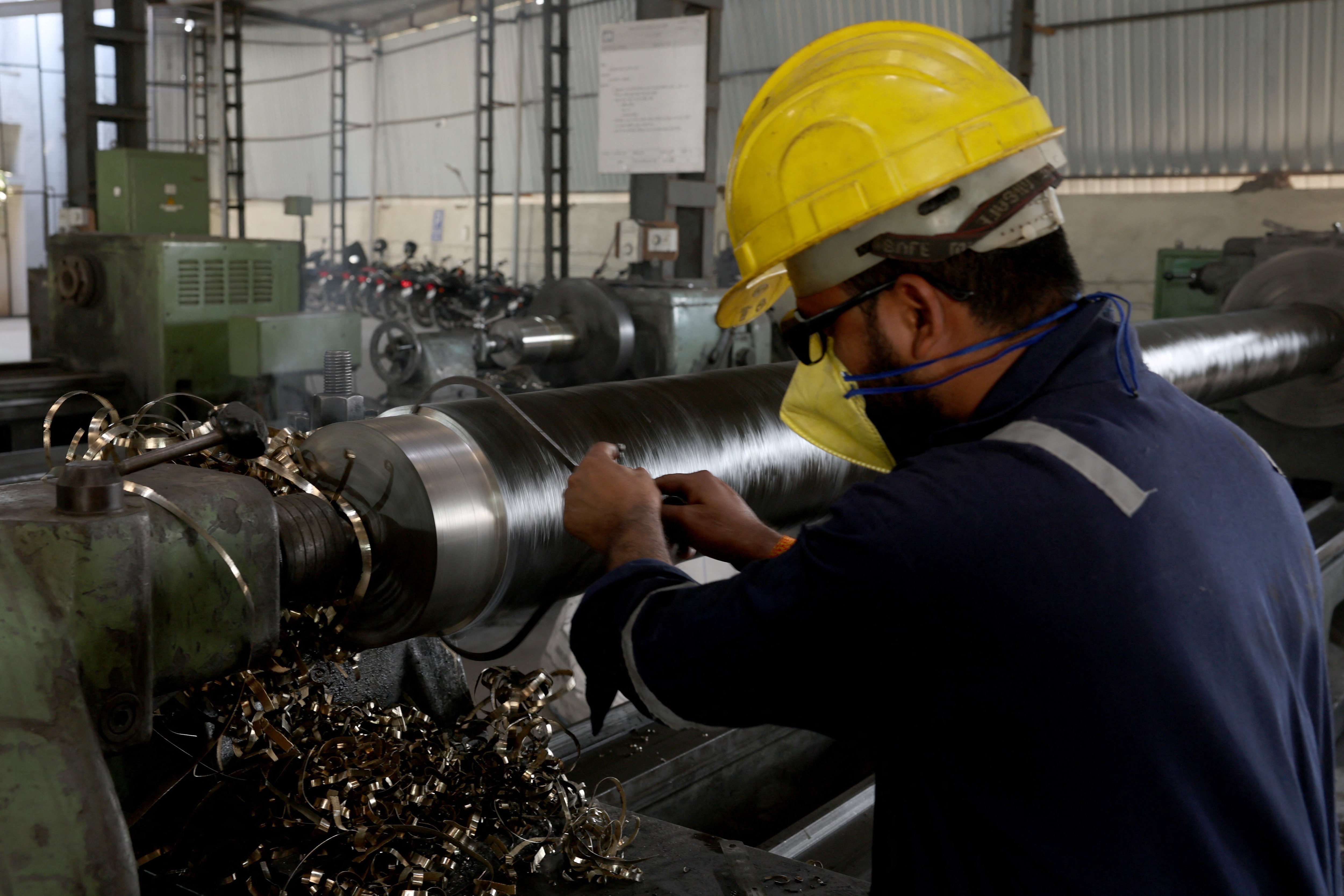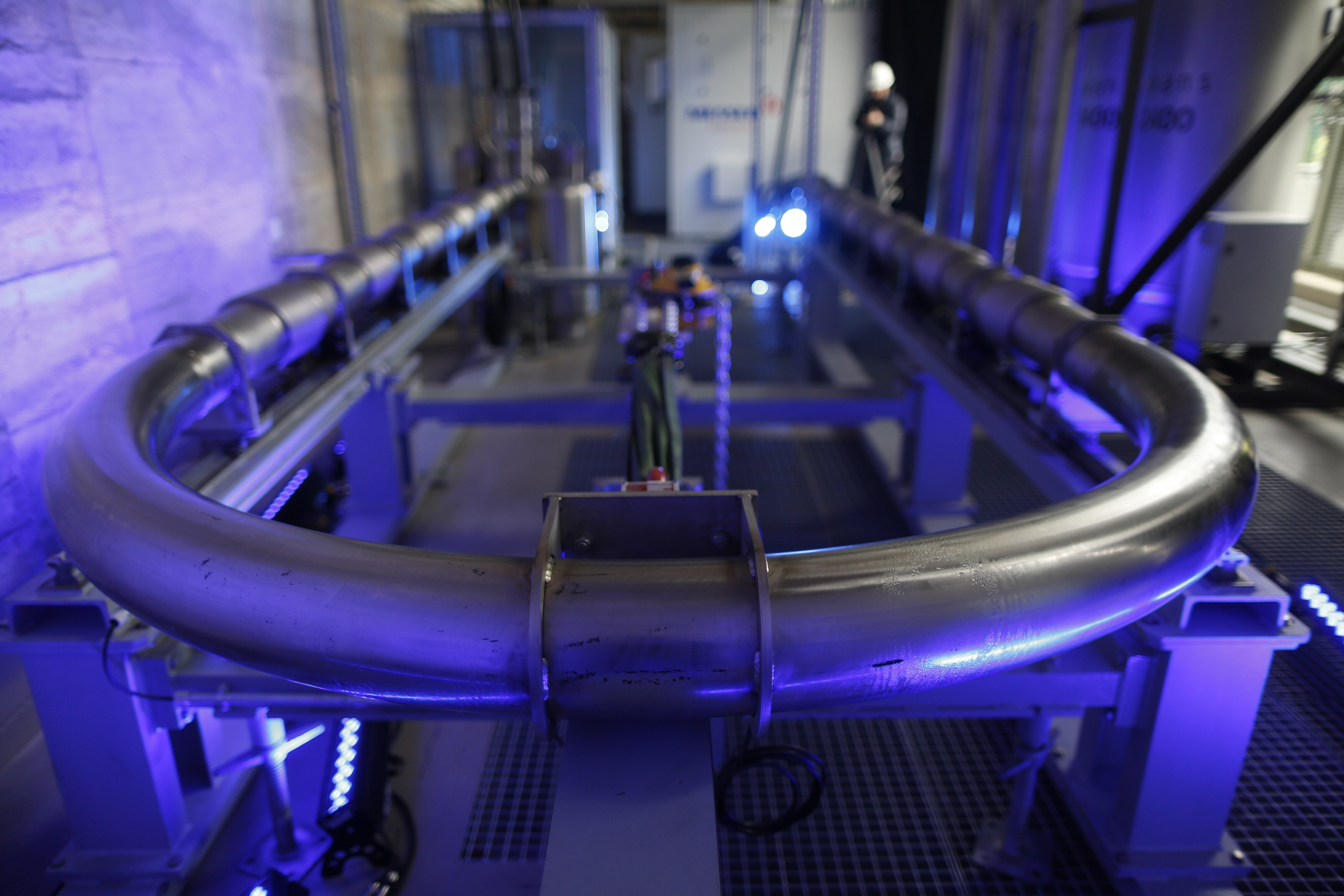What the AI transformation of consumer industries can teach others

The AI-induced transformation of consumer industries will have a significant and lasting effect on business, people and society. Image: Getty Images
- Consumer industries' AI transformation reflects evolving consumer expectations and practices, with implications for all businesses.
- Taking an enterprise-wide view of key processes by seeing them as mega processes will support creativity, innovation and growth.
- Scaling AI successfully requires people-centred leadership, technological readiness and a commitment to responsibility.
Within the next five years, most organizations are expected to reimagine every part of their value chain on the backs of artificial intelligence (AI) technologies. But the ones to watch for transferrable lessons, more so than most, are those in the consumer industries.
Why? These industries are the largest employers in the world and reflect the evolution of consumer expectations more directly than any other. Most, if not all, businesses in any field are either directly or indirectly part of a consumer industries value chain.
And their transformation – across the key sectors of agribusiness, consumer goods and retail – will have a significant and lasting effect on business, people and society. How AI will shape these sectors is the focus of the World Economic Forum’s Transforming Consumer Industries in the Age of AI white paper, produced in collaboration with Accenture, which offers the following insights.
AI 'mega processes' to rethink traditional business functions
Currently, many companies are identifying opportunities to demonstrate proof points for positive business impact, including return on investment (ROI). Most are pursuing efficiency and productivity gains. Some are raising the bar on innovation, for example by enhancing consumer engagement through hyper-personalization.
Greater AI adoption has already led to greater revenue growth. In fact, the changes we’re seeing have disrupted the growth assumptions of many of the world’s leading companies. Frontrunners are also looking ahead to the possibilities that will emerge as they integrate agentic AI, whereby teams of AI agents can make decisions with minimal human oversight and also execute complex tasks on their own.
Scaling AI with that intent will enable business leaders to redraw four capabilities that are integral to how companies function as fluid, AI-enhanced "mega processes": strategy and planning, innovation and growth, customer and/or consumer engagement, and operations and supply.

Notably, these mega processes are equally relevant in other fields, though companies in different domains should adapt them according to their individual models and strategies. Businesses should consider the following:
Strategy and planning processes will transform into “living organisms”, as generative AI (GenAI) tools, agents and teams help executives sort, analyse and derive insights from real-time data on consumer preferences and global trends. Consider, for example, how a digital twin-based representation of the entire enterprise value chain could enable executives to evaluate multiple possible future scenarios collaboratively and systematically, and then easily align and synchronize strategic, tactical and operational plans across the value chain.
The projected impact of GenAI for this mega process? A 10-20% revenue uplift, 5-10% cost reduction and 15-30% EBITDA impact.
Innovation and growth will realize added value through a constant loop of ideation, co-creation with consumers and near-instant scaling. Picture AI agents scanning countless live data streams to anticipate and uncover untapped opportunities. Or in silico R&D, which uses computer simulations and models for research and development, for ingredient/raw material discovery and production formulation, creating more certainty, increased efficiency and better outcomes even before production.
The projected impact is a 50-70% increased innovation success rate and 50% faster time to market, along with a 20% decrease in time spent on incremental innovation activities.
Customer and consumer engagement in the age of AI presents immense opportunities for consumer-facing companies to deepen relationships and drive long-term loyalty. By delivering trusting, compelling and personalized benefits across expanding customer touchpoints, consumer goods companies and retailers can strengthen connections and enhance value delivery in ways previously unimagined.
GenAI is reshaping this landscape by analysing vast amounts of structured (CRM databases of customer data and interactions) and unstructured data (consumer feedback) in real time. Leveraging multimodal models – AI systems that integrate multiple data types – along with machine learning and prescriptive analytics, companies can design and deliver relevant, tailored experiences that reach consumers at precisely the right moment – driven by seasonal trends, behavioural patterns and evolving preferences.
From another vantage point, an Al-enabled “intelligent sales coach” could support field sales and customer service representatives, offering personalized advice on their sales pitches and suggesting next-best actions while automating many non-customer-facing activities.
The projected impact includes a 60% reduction in content production costs, a 10-15% increase in brand net promoter score, and a 20% rise in conversion rates.
How the Forum helps leaders make sense of AI and collaborate on responsible innovation
Another dimension of transformation lies in operations and supply chains, where autonomous, AI-driven systems predict demand and dynamically reconfigure in real time to meet customer and consumer needs. A dynamic and interactive control tower, for example, could provide end-to-end automated contract-life-cycle management, supplier review, order management and vendor risk assessment – ensuring consistent sourcing, improving efficiencies and mitigating disruption.
In operations and supply, a GenAI-powered mega process can drive an expected 25-31% improvement in labour efficiency, 15-25% improvement in on-shelf availability and a 10-15% reduction in inventory carrying costs.
Enabling reinvention through AI
To fully leverage these mega processes, leaders will need to support their people in new and different ways. For example, with 40-60% of activities expected to be automated or augmented, leaders will need to help employees to transition successfully into new roles where they may be overseeing automated activities and collaborating with AI agentic teams, learning from AI and training it, continuously.
Additionally, they will need to build a strong digital core. Despite 45% of consumer executives believing they can scale GenAI enterprise-wide in 6-12 months, just 13% are extremely confident that their current digital foundations can support AI deployment at scale.
Finally, they will need to be proactive about setting and maintaining high standards of trust, transparency, data governance and sustainability. As Athina Kanioura, PepsiCo’s Chief Strategy and Transformation Officer said: “As a company, we are making significant commitments in the sustainability space. But with this ambition, we need the right enablers. AI becomes an enabler of how we protect the environment.”
Already, PepsiCo is using the power of AI to help potato growers gather and analyze vast amounts of data in real time and identify ways to improve productivity and optimize yields while reducing water, pesticides and greenhouse gas emissions. As more data is collected, PepsiCo’s farming practices become increasingly sustainable.
By 2038, the projected economic impact of GenAI’s transformative power is expected to yield an extra $1.2 trillion in economic value across just seven geographies within consumer industries, if adopted in a people-centric and responsible manner.
The mega processes can help business leaders across the consumer industries capture that value. Imagine what they can do for yours.
Thomas Beckley, Fellow, AI and Metaverse Initiatives at the World Economic Forum also contributed to this article.
Learn more about how consumer industries can scale AI across the enterprise via the 'mega processes' outlined in our white paper, Transforming Consumer Industries in the Age of AI.
Don't miss any update on this topic
Create a free account and access your personalized content collection with our latest publications and analyses.
License and Republishing
World Economic Forum articles may be republished in accordance with the Creative Commons Attribution-NonCommercial-NoDerivatives 4.0 International Public License, and in accordance with our Terms of Use.
The views expressed in this article are those of the author alone and not the World Economic Forum.
Stay up to date:
Artificial Intelligence
Forum Stories newsletter
Bringing you weekly curated insights and analysis on the global issues that matter.
More on Technological InnovationSee all
Tejpreet S Chopra and Ayushi Sarna
February 27, 2026






